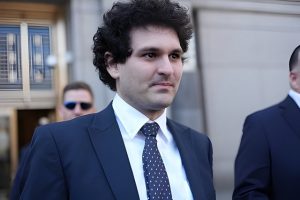California governor vetoes bill on AI safety measures

California governor vetoes bill on AI safety measures
California Governor Gavin Newsom has vetoed a significant bill intended to implement pioneering safety measures for large artificial intelligence models.
This decision represents a substantial setback for initiatives aimed at regulating the burgeoning industry, which is advancing swiftly with minimal oversight. Proponents of the bill argued that it would have introduced some of the first regulations for large-scale AI models in the United States and set a precedent for AI safety regulations nationwide.
Earlier this month, the Democratic governor urged California Governor to lead AI regulation, noting federal inaction. He warned the proposal might harm industry.
The proposal faced strong resistance from startups, major technology companies, and various Democratic members of the House, with Newsom indicating that it could negatively affect the local industry by instituting stringent requirements.
California Governor Newsom stated, “Although SB 1047 is well-meaning, it fails to consider the deployment of AI systems in high-risk settings, their involvement in critical decision-making, or the handling of sensitive data. The legislation imposes rigorous standards on even the simplest functions, provided they are utilized by a large system. I do not think this represents the most effective method for safeguarding the public against the genuine risks associated with this technology.”
Governor Newsom announced a collaboration with experts, including Fei-Fei Li, to create AI model safeguards, despite Li’s opposition to the initiative.
The initiative aimed to mitigate AI risks by requiring companies to evaluate models and share safety measures to prevent misuse. Experts warn that such scenarios could become feasible as the industry evolves swiftly. Additionally, the measure would have offered whistle blower protections for employees.
The author of the bill, Democratic state Senator Scott Weiner, described the veto as “a setback for everyone who believes in oversight of massive corporations that are making critical decisions affecting public safety, welfare, and the future of the planet.”
Weiner stated that companies developing advanced AI systems acknowledge the increasing and real risks these models pose to the public. Despite commendable pledges from major AI labs, voluntary industry commitments lack enforceability and often fail to serve the public interest.
California Governor Blocks Contentious AI Safety Bill

Wiener stated that the discussions surrounding the bill have significantly progressed the topic of AI safety, and he intends to persist in emphasizing this matter.
This legislation is part of several bills aimed at regulating AI, fighting deepfakes, and protecting workers enacted this year. State legislators emphasized California must act decisively this year, citing lessons learned from failing to effectively regulate social media companies.
Advocates, including Elon Musk and Anthropic, argued the proposal would enhance transparency and accountability for large-scale AI models. Developers and experts say they still lack a thorough understanding of the behavior and mechanisms behind these AI systems.
The legislation specifically targeted systems that necessitate substantial computing resources and investments exceeding $100 million for development. Although no existing AI models currently meet this criterion, some experts believe this situation may change within the coming year.
Read Also: iPhone 16 Camera Control, Action Button and New Colors
Daniel Kokotajlo, ex-OpenAI researcher, attributed the rise to increased industry investment, leaving due to concerns over AI risks.
“It is an alarming amount of power for any private entity to wield without accountability, and it poses considerable risks.”
The United States currently lags behind Europe in its efforts to regulate artificial intelligence in order to mitigate associated risks. Although the proposal from California was not as extensive as the regulations implemented in Europe, proponents argued that it would have represented a valuable initial measure to establish boundaries for the swiftly advancing technology, which has sparked worries regarding job displacement, misinformation, privacy violations, and automation bias.
Last year, major AI companies committed to White House safeguards, including testing and sharing information about their models. Supporters said the California bill would require AI developers to follow similar obligations to existing industry commitments.
Opponents like Nancy Pelosi argued the bill would harm California’s tech sector and stifle innovation. They argued the bill would discourage AI developers from investing in large models or sharing open-source software.
Last year, leading AI companies agreed to follow White House safeguards, committing to test and share information about their models. Supporters of the California bill stated it would require AI developers to meet obligations similar to existing industry commitments.
It would, however, adversely affect California’s technology industry and lower the innovativity of the state. Critics, including ex-U.S. Speaker Nancy Pelosi claimed the bill would deter AI developers from investing in large models and distributing open-source software.
California has been positioned as a pioneer in the adoption of generative AI technologies, with plans to utilize these tools to alleviate highway congestion, offer tax assistance, and enhance programs aimed at addressing homelessness.
The state partnered with Nvidia to offer AI training for students, educators, developers, and data scientists through a voluntary program. Furthermore, California is contemplating the introduction of regulations to combat AI-related discrimination in hiring processes.
Governor Newsom recently enacted strict laws to combat election deepfakes and protect Hollywood workers from unauthorized AI use.
Despite Newsom’s veto, the California safety initiative is motivating legislators in other states to pursue similar actions, according to Tatiana Rice, deputy director of the Future of Privacy Forum, a nonprofit organization that collaborates with lawmakers on technology and privacy issues.
“They are likely to either replicate it or implement comparable measures in the next legislative session,” Rice stated. “Thus, it is not a matter that will fade away.”
The Associated Press and OpenAi signed an agreement allowing OpenAi access to parts of AP’s text archives for licensing.











